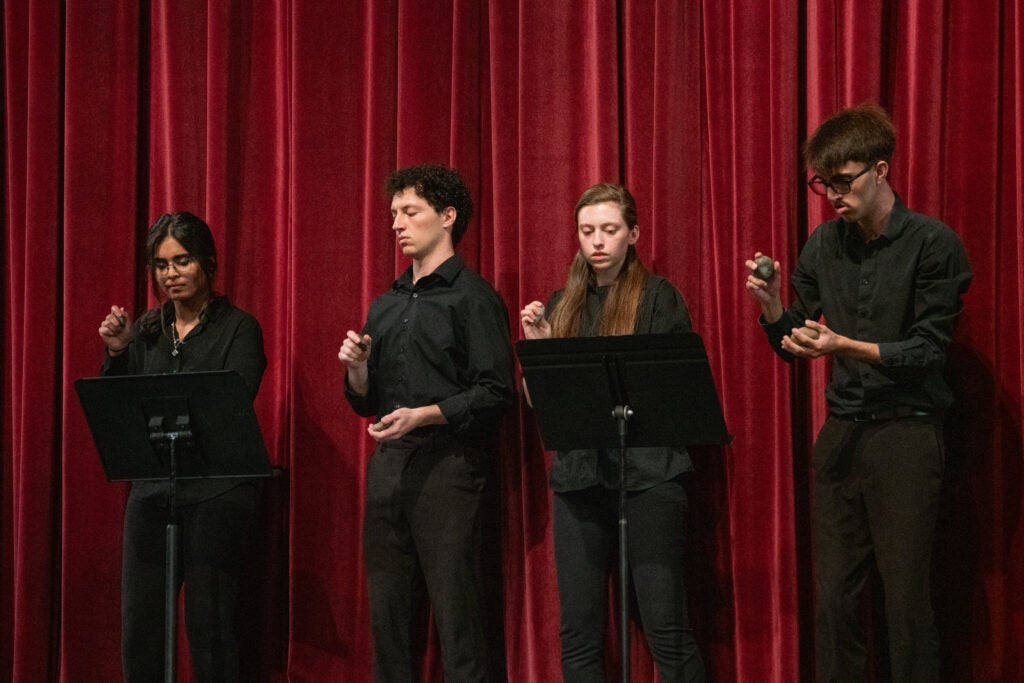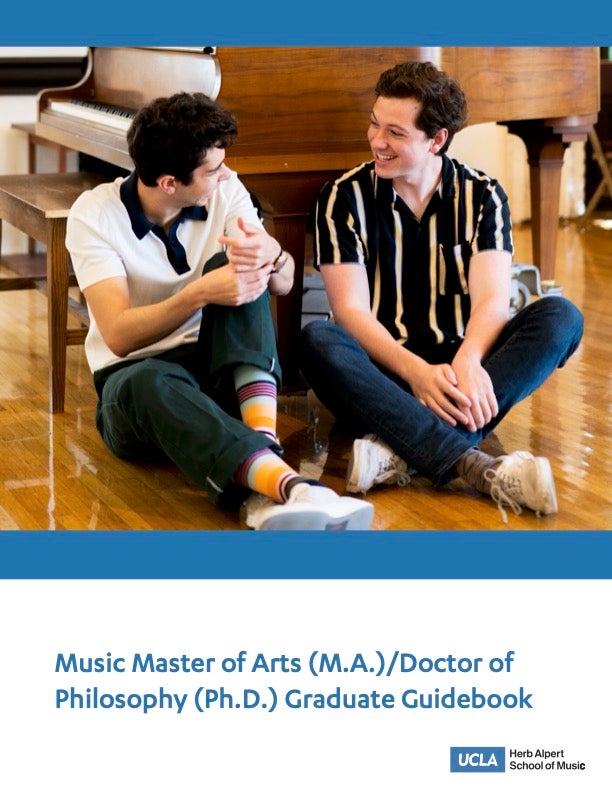Students in the M.A. and Ph.D. programs may specialize in Composition or Composition for Visual Media, with cross-collaboration between the two tracks serving as a hallmark of the program. Both emphasize advanced training in theory, orchestration, analysis, technology, performance, and diverse musical traditions, while fostering strong composer–performer collaboration that mirrors professional practice. Composition students can explore film and world music, while film composers benefit from immersion in a comprehensive composition program. M.A. graduates leave prepared for professional careers in concert, film, and opera, while the Ph.D. prepares composers to excel as both practicing artists and mentors to future scholars.
Music Composition
Graduate Student Resources

Graduate Guidebook
The UCLA Herb Alpert School of Music M.A./Ph.D. Graduate Guidebook is a comprehensive resource designed to support current and prospective graduate students in navigating their academic journey. It provides clear information about program requirements, coursework, milestones, policies, and procedures specific to the Music Composition graduate programs. Serving as both a reference and planning tool, the guidebook ensures that students have access to up-to-date details approved by faculty and the graduate committee, helping them successfully progress through their degree.

Composition Graduate Guidebook
Graduate Music Composition Forms and Petitions
DGE Nomination Doctoral Committee Form 
Use this form to nominate your doctoral committee. After signatures are received, the SAO will submit it to the Division of Graduate Education. Processing can take up to two weeks.

Graduate Departmental Course Substitution Petition 
Use this petition to substitute UCLA courses for degree requirements. For outside transfer credit, submit Graduate Division’s Graduate Degree Petition.

Graduate Independent Study Syllabus 
As part of the enrollment process for MUSC 596, 597, 598 or 599, please complete a syllabus and share with the instructor of record.

Foreign Language Petition 
*Not a DocuSign form* Once you have completed your language requirement, please complete this form, sign, and submit to your SAO.

M.A. Committee Request Form 
Use this form to submit a MA Committee request in Spring quarter of the student's 2nd year.

M.A. Change in Specialization 
Use this form to request a specialization change for the Music M.A. Approval from the Composition department is required.

Ph.D. Change in Specialization 
Use this form to request a specialization change for the Music PhD. Approval from the Composition department is required.

Ph.D. Composition Specialization Written Qualifying Exam Committee Request 
Composition Specialization students, request your Written Qualifying Exam committee.

Ph.D. Composition Visual Media Written Qualifying Exam Committee Request 
Composition for Visual Media students, request your Written Qualifying Exam committee.

Ph.D. Report on Doctoral Examination 
Completed your Written Qualifying Exams? Submit this form to your Written Qualifying Exam committee for their official record of your exam grades.

Ph.D. Doctoral Committee Request & Dissertation Approval Form 
This form requests department approval of a student’s doctoral committee and dissertation topic, submitted alongside the Nomination of Doctoral Committee Form.


